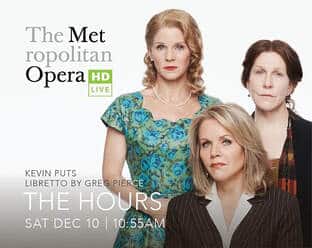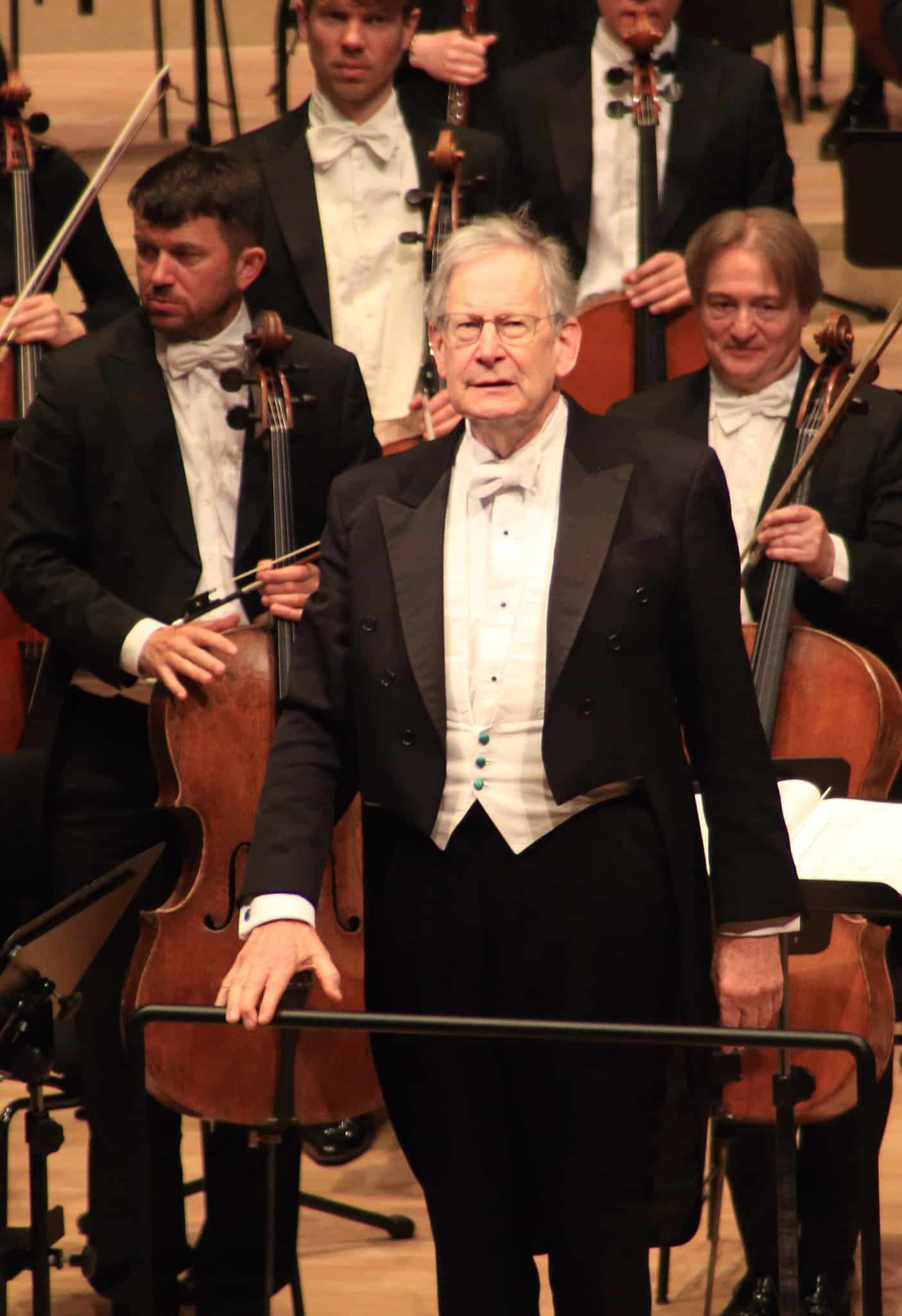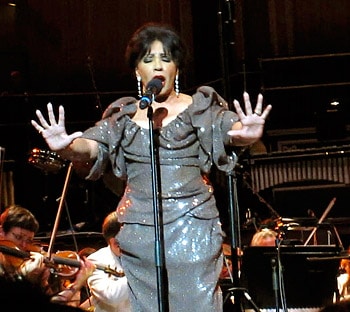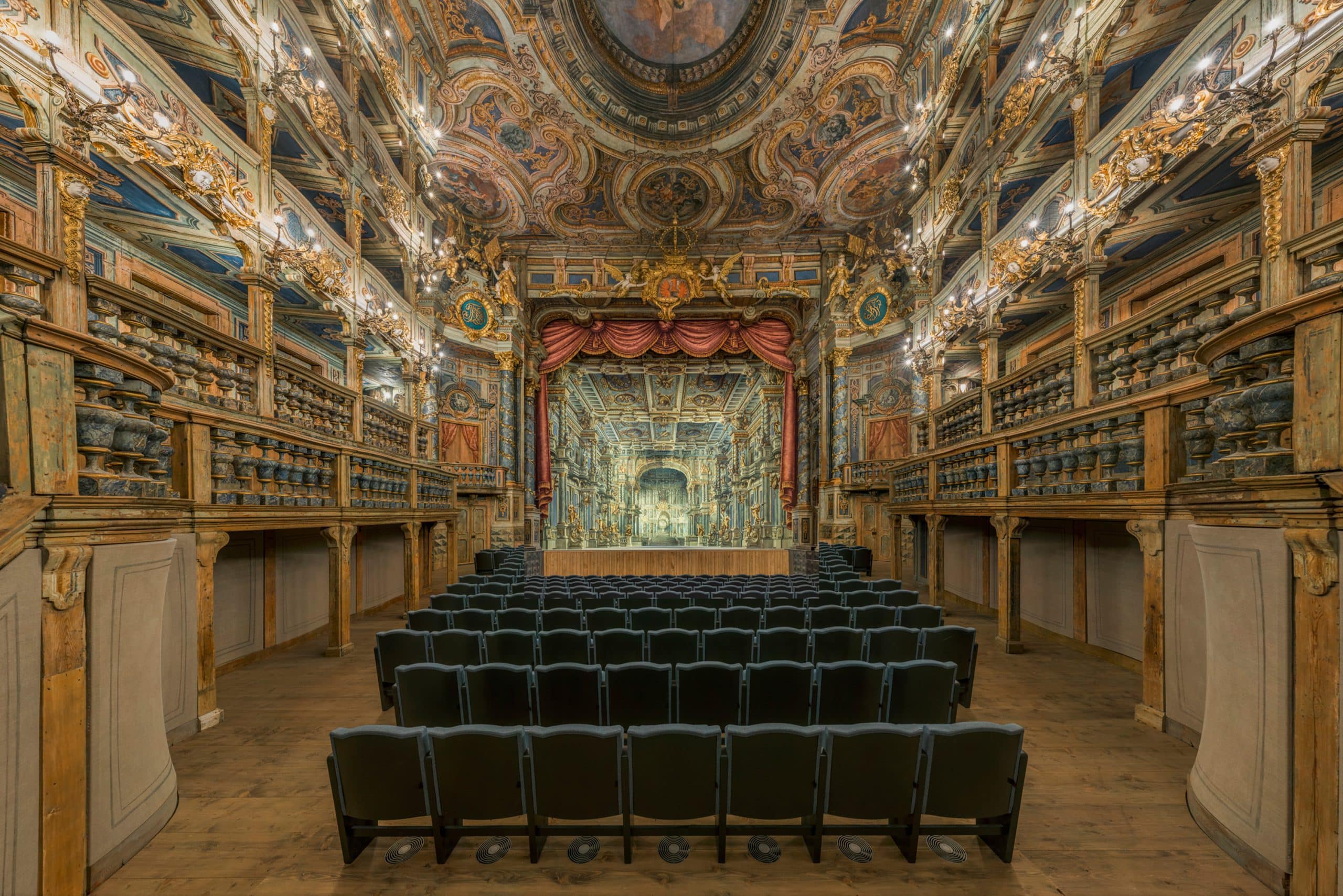Revealed: the Met’s least popular operas
OperaThe Metropolitan Opera has released its end-season performance statistics.
Overall, it played to 72 percent capacity (down from 75% pre-Covid) and to 64% of potential ticket revenue, after discounts and freebies.
General manager Peter Gelb told the Associated Press that single-ticket buyers, 85% of the audience, averaged 44 years old. Subscribers were 70+years old.
These were the best and worst selling operas:
The Magic Flute – 87%
Turandot – 82%
Carmen – 81%
X: The Life and Times of Malcolm X – 78%
Madama Butterfly – 75%
La Bohème – 74%
Nabucco – 72%
La Forza del Destino – 71%
Florencia en el Amazonas – 68%
Fire Shut up in My Bones – 65%
Dead Man Walking – 62%
The Hours (pictured) – 61%
El Niño – 58%
Un Ballo in Maschera – 56%
Draw your own conclusions.






I’m actually surprised that even the worst-attended operas reached more than 50%, given how reactionary and narrow-minded opera lovers are.
Thank you. Agreed. So much pearl-clutching by would-be keepers of the realm.
Er, so maybe they’re not so reactionary and narrow-minded?
The problem is, not only are those operas not attracting “reactionary and narrow-minded opera lovers”, they’re not attacking anyone else either, which was the point of programming them. So maybe the problem’s not provincial opera lovers….maybe it’s the works, themselves. Btw, you certainly come across as very broadminded. How many of them did you see?
It is the quality of the works themselves. The musical scores are derivative contemporary second-rate material. It wouldn’t matter if not one of these operas disappeared for good.
“The problem is, not only are those operas not attracting ‘reactionary and narrow-minded opera lovers’, they’re not [attracting] anyone else either”
56% of seats at the 3,800-seat Metropolitan Opera House is roughly 2,000 tickets sold per performance. Put the same number of attendees in most opera houses in Europe and the performances would be sold out or nearly so and everyone would be saying the operas were hits.
It’s so sad that reaching 50% is considered positive in the opera world. The fact that the Met’s attendance is so bad in a city the size of NYC, with all of the tourism to boot, is very sad.
Thousands go, but thousands don’t in a house as a barn that size! Would be different if it were Glyndebourne!
Are we supposed to be surprised that several of the all-time most popular operas were the most popular operas? And that some newer and lesser-known operas were less so? Actually, it might be even more pronounced, because there were probably a lot more performances of Magic Flute, Turandot, and Carmen.
And despite everyone wanting to play New York, it doesn’t have the most adventurous audiences. This is the place where people walk out of Wozzeck in the first 30 seconds (not knowing what they bought in their subscription?), or over the Philharmonic walk out of Turangalila or don’t return after intermission for Nielsen 4.
The only surprise to me is the Nabucco and La Forza did as well as they did.
But what is the MET to do? Nothing from the late 20th and early 21st century?
Last season, they made a grand statement indicating that certain new operas (The Hours, Fire Shut Up) had been their best sellers. They brought these back for another run this season. A lot of people were excited as this was an indication that more new operas might be the wave of the future.
I think the mistake was bringing the modern operas back immediately for the following season. They should have brought them back 3 or 4 years later.
You can see that Malcolm X did quite well this season. It was brand new. Should they repeat it next season or wait a few years to present it again?
You’re absolutely right. If the new operas were the new direction of the Met, then the Met doesn’t have much direction to follow.
I’d predict that, as with the contemporary operas which were revived this year after selling extremely well in their first runs, X will not sell well when it’s revived.
It’s a pattern which I remember going back at least to William Kentridge’s brilliant staging of Shostakovich’s The Nose, very highly praised at the time, covered a ton in The New York Times, and sold out or nearly so. When it was revived a few seasons later (with little coverage in the Times other than a review because it was no longer a new production), it sold poorly.
The easy explanation, which may or may not be correct, is that the out-of-town visitors didn’t want to try any title they didn’t recognize and all the New Yorkers who were interested in seeing them saw them the first time around.
People walking out of Wozzeck? Are people really that narrow-minded? And even so, I am aware that the Met has staged Wozzeck and Lulu with some success. Or maybe I am mistaken and the seasons when these two operas were featured were the worst-selling ones.
Yes, they walked out of Wozzeck. But if they don’t support American operas in general either, what chance is there then? Wozzeck is an acquired taste and needs a sophisticated ear. Hardly easy listening but ignorant to walk out. But fne American operas, no excuse not to turn up.
I can remember nearly sold-out performances of “Wozzeck” at the Met where the people did the opposite of leave after 30 seconds. They stayed and cheered to the rafters.
And Turangalila will sell out any symphony program with no detectors.
He’s just making stuff up. I’ve attended both Wozzeck and Lulu at the Met and I saw zero people walk out. They were warmly received.
Really? Even Covent Garden wasn’t by any means full to the rafters and much cheaper tickets up for grabs, and a much, much smaller house than the Met barn.
I love how people reference Wozzeck as if it was some contemporary work when discussing new operas.
Wozzeck is an exemplar of atonal expressionism which is why it has remained in the repertory.
It is nearly 99 years old and justly stands on its own merits.
Why on earth does it surprise you that Forza and and Nabucco did as well as they did? Forza is one of the great masterpieces of the greatest man of the theatre after Shakespeare*, and Nabucco has much terrific music in it.
*Or maybe the third greatest after WS and Mozart!
I saw Nabucco in the cinema in England – or I attempted to. Mediocre singing, poor diction and in a very boring production. Left at the interval like many, and went off to have a meal. If that is a reflection of New York audiences with 70+ year old subscribers, we’ll then no future.
It looks like Butterfly and Boheme are losing their grip on Met audiences. Only 75/74%?
A shame that El Niño didn’t do better. It’s a gorgeous work but not entirely suited for the opera stage.
It’s not really a fair comparison. The Met does more performances of Boheme which affects the percentages.
One factor is that the Butterflies and Bohemes have lots of performances, sometimes 10 or more whereas other operas have fewer. Of course this would tend to lower their % attendance………..lies, damn lies and statistics!
No, that is not how the percentages work in this table. The numbers show the average proportion of seats filled by performances of each opera. So, Madame Butterfly on average filled 75% of available seats when it was performed. The Hours filled 61%. Increasing the number of Hours performances would not have changed the 61%; doing so probably would have done the opposite since it is newer and a more specialized-interest work.
El Niño was a poor choice. On the radio it went for nothing but it would have been a fine choice for an HD in the the movie theaters.
Audiences are going to do what audiences are going to do, but I was surprised to see Verdi’s “Ballo” at the bottom of the list. It’s a wonderful opera, for which I also have great personal affection because the Leontyne Price/Carlo Bergonzi recording was my personal introduction to opera itself.
On the other hand, although it’s a wonderful opera, containing many moments of passion and color, I find the Met’s production photos of minimalist sets and monochrome design palette to be the very opposite of inspiring. It looks like “Ballo On A Budget.”
https://www.metopera.org/season/2023-24-season/un-ballo-in-maschera/
The current production is pretty poor. I think I’m right in saying it’s never been popular with audiences. Time to retire it
Yeah, that Ballo production, which I sadly remember, seems to have been set in what looks like the lobby of the Chrysler bldg. in which Gustavo joins in a Broadway chorus line dance. I love the opera but never went back to this production.
Amen! What insulting garbage.
I never saw Ballo or Tannhauser advertised anywhere (I went to tannhauser and it was a great performance that was well attend).
On the other hand, from February to May, I couldn’t go two minutes on Facebook or Instagram without seeing an ad for “The Hours.”
Looks like some unsuccessful Gelb Astroturfing to me
The Hours sold very well in its initial run. That’s why they tried reviving it.
I agree about Un ballo. Perhaps it’s a terrible production. We had one in London where the male chorus were all sitting on toilets.
Peter Gelb, listen to me once and for all, because you are lost:
1) Opera is a very peculiar art form that people don’t come to for the first time because of identity politics or contemporary issues, that it’s about the death penalty, or AIDS, or coming out, or a hispanic Jesus.
2) Newcomers to opera want to be and find themselves overwhelmed by the music, the spectacle, the orchestra, the chorus, the singing
3) And the operas that overwhelm are the classics
Don’t compromise on quasi-Broadway pieces that are not good enough for Broadway and not popular enough for the Met. There is a place for The Hours, I’m just not sure where, between the book and the movie.
Respect your genre, trust your genre, know your genre, your new audience does.
Absolutely 100% on the mark and thank you for saying it so clearly and thoughtfully.
Chet, I would add one reason why people DON ‘T go to the opera: Speaking for myself, I don’t go to the opera to get angry!!! And that is my reaction to many of the regie-opera/Eurotrash productions and quality of the singing we have today. I had been a regular attendee at the MET for over 50 years, but I haven’t set foot in the house since 2012!
I was working at Lincoln Center Theater (ie. next door to the Met) during the “X: The Life…” run in the Fall, so I had many occasions to watch the crowd, and even give directions to people who had clearly never been to LC…
I’d take issue with your #1 and #2 statements from what I saw. A lot of newcomers, who, I think, were there for the “identity politics” and “contemporary issues”, and
it was a beautifully diverse and unusual audience IMHO.
And that’s not a quasi-Broadway piece (and not a new work).
My conclusion is that the subscription model may well be a thing of the past.
My other conclusion is that audiences are unpredictable. What a surprise!!!!!!
Up through the 1990s the percentage of the house subscribed was in the 80-90s. Any idea what it is now? Not % of seats sold at any given performance but % of house subscribed. I’m not able to find the answer. Or is it a state secret?
Subscriptions at the Met NEVER accounted for 80-90%. …EVER.
The subscription base was extremely important for immediate cash flow pre-season. Now cash management is much different than 20 years ago, relying more on upfront gifts and bank loans.
Lol. Last year YNS gave an interview to 60 Minutes where he gushed about how their edgy, innovative, new programming, (i.e. woke crap) was bringing in a “younger, more diverse crowd”. He made it pretty clear what he thought about their old audience. If they somehow failed to comprehend his brilliance….well tough, because he was attracting cool people who didn’t “feel welcome” before he showed up with his breathtaking superficiality! Yay!!!
Well the cool people seem to have lost interest so apparently telling you loyal supporters that you think they’re s**t is not a winning strategy. Who would have thought…..? They got what they deserved.
===================
From 60 Minutes:
They’ve tried courting a younger, more diverse crowd here before, but Nézet-Séguin is doing it prestissimo, speeding up the tempo of change. He’s betting that new composers and contemporary operas – some adapted from bestselling books and Hollywood hits – will bring in a wider audience and shore up the bottom line.
And early results suggest he’s right.
A recent premiere of the opera “Fire Shut Up in My Bones”— based on a memoir by journalist Charles Blow and composed by jazz legend Terence Blanchard – sold-out and outsold Verdi’s classic “Rigoletto” here that season. What’s more, half the seats were filled by first-time Met goers.
Yannick Nézet-Séguin: It’s great, such a success. And yet I’m thinking that means that all of these people never felt compelled, or, dare I say, welcome to come here. And that is my mission.
Jon Wertheim: First timers were 50%. You saw that as both a triumph but also sounds like an– an indictment.
Yannick Nézet-Séguin: Mostly it’s a tremendous encouragement to continue in that vein.
Jon Wertheim: How do you thread that needle between– experimenting and bringing in new audiences, but also not upsetting the traditionalists?
Yannick Nézet-Séguin: The truth is I’m not necessarily concerned about not upsetting traditionalists. I think people who love our art form are still gonna love it because we’re still gonna play some Puccini and Verdi. To me it’s– it’s never about not upsetting. And if some people are upset, well, too bad. They just don’t have to come to everything we do.
“They just don’t have to come to everything we do.”
And they don’t…
And a mere 10% of those first timers and newcomers go on to buy tickets to other shows and traditional rep at least once.
But I’m so grateful to YN-S that he’ll allow us to hear “some” Puccini and Verdi once in awhile, poor benighted unwoke irrelevant fools that they were.
The level of this musical director’s superficiality and dismissal of a traditional audience is really quite sad and ultimately quite harmful
I appreciate these things aren’t straightforward but if they reduced tkt prices would they increase attendance numbers…and at some stage generate more overall income?
That’s what discounted tickets attempt to do. According to the text above, many tickets were discounted.
But for many people, the opera ticket is only a part of the cost… you have to get into town, park, hire a baby sitter, probably have dinner… even if the ticket were $0 the logistics remain unworkable for many people.
Capacity is not sold tickets. Sold tickets do not reflect steeply discounted or subsidized (Rush Ticket Program) tickets. Best not to even reference comps.
Pre-Gelb, these figures also reflected total ticket revenue (with historical comparisons). Under PG, these reports are studies in obfuscation.
Peter Gelb need not worry. Most of his board is easily hoodwinked. They’re just happy to rub elbows.
Thanks to the woke Gelb, a once legendary opera house is sinking faster than the Titanic. Soon the house will be vacant and use to house migrants….Somewhere Rudolf Bing is crying….
Ah yes, I knew it would only be a matter of time before someone uttered the phrase “woke Gelb” on here. And throw in a little gratuitous xenophobia while you’re at it.
The Met is doing quite well, all things considered. Their attendance has been on the upswing over the past 2 seasons, and up 6% from last season. I’d call that pretty darn good.
Ah, so you’ve read the Met’s press releases. Always the best source.
I honestly thought the numbers were going to be worse. It’s unsurprising that “Florencia en el Amazonas” has a decent percentage. It premiered in 1996 with a Spanish-language libretto, and the music is straightforward, melodic and easy to follow. Not precisely my cup of tea, though. I sometimes dream about the time when the MET stages something from Aribert Reimann (to me it’s the kind of European modernism within a traditional dramatic structure that works very well), but I don’t think that’s ever going to happen. In any case, they produced Brett Dean’s Hamlet some years ago, and its music is more complex than “Florencia” and “The Hours”.
Dear Norman ,
One shouldn’t be astonished at your list of popular operas and less attractive ones. From the beginning of the history of opera 99% of all operas have been awful or competent but forgettable. One can dismiss the music as an abyss but merely a competent setting of a libretto isn’t as easy to identify at a waste of any evening. Salieri’ opera for example are pretty good fare if the opera never had none of the geniuses it did. The start for opera is genius and greatness, not competence. Anything less that criterion fails and disappears.
Opera goers aren’t usually conservative. They want a wonderful evening of High Art. They will show up to get it if they can but if they have been sold a bill of goods once that doesn’t aim for genius they don’t ccme back. That’s why the City Opera closed.
Old operas compete for our amusement in real time, a present that only judges them by their genius.
yours,
Matty
“That’s why the City Opera closed.”
That is NOT why City Opera closed.
The Met tends to Tepley many of the great opera too often. They do not showcase the great variety of 19th century opera. They rarely play masterpieces such as Khovanschina, Mefistofele, La Gioconda, Les Troyens, or the variety of operas by composers such as Donizetti, Rimsky-Korsakov, Massenet and Smetana.
“ Khovanschina, Mefistofele, La Gioconda, Les Troyens“
You sure have my vote for all four 🙂
Perhaps, but those operas would probably sell poorly too. In a city of over 8 million, in such a famous house, people are viewing at 70-odd % and the Met thinks that’s pretty good? Read the writing on the wall: opera is part of the classical music world, so it is faring poorly. Nothing lasts forever.
Yes! A thousand times yes.
Frankly, I’m not so interested in seeing Turandot, etc., again, as opposed to discovering some new treasures.
Please, PLEASE, something other than the old war horses.
This can’t be right. Turandot was 100% sold out when I was there, as well as Forza with Lise Davidsen.
Even superstar Renee Fleming could not save “The Hours”.
Tannhauser was 64%
MetHD in cinema went from $15m/year pre-Covid to $2m.
And the Met endowment funds dropped from 350m to 275m.
Conclusion – Met audiences don’t like Mozart and belcanto operas. They do better in smaller houses.
Correct me if I’m wrong, but the Met performed only one Mozart opera this past season and it was the highest seller.
There were no bel canto operas in the 23-24 season.
Opera houses really need to up their game in order to compete with many symphony orchestra that are starting to put on excellent opera concerts, like L.A. Phil, Washington D.C., and Cleveland.
The first step on the road to Met’s recovery: Bring back Anna Yuryevna! N’est-ce pas?
Someone should tell them about that chap named Strauss…
you mean Richard Strauss the composer of the Blue Danube?
The last 3 performances of Florencia sold out on word of mouth. If it comes back, I bet it will sell well.
It seems to me, as a long-time Met attendee (until COVID, that is), that the Met had always been something of a STAR venue for opera.
When I was coming along, we had such luminaries as Leontyne Price, Franco Corelli, Birgit Nilsson, Leonie Rysanek, Christa Ludwig, Jon Vickers, Regine Crespin, Richard Tucker, Carlo Bergonzi, Renata Tebaldi, Nicky Gedda, Alfredo Kraus, Shirley Verrett, Cesare Siepi, Nicholai Ghiaurov, Marilyn Horne, Joan Sutherland, Fiorenza Cossotto, Montserrat Caballe, Grace Bumbry, Jose Carreras, Mirella Freni, Renata Scotto, Luciano Pavarotti, Kiri Te Kanawa, Tatiana Troyanos, Placido Domingo, to name a few of the bigger names. These great artists appeared in virtually all the “bread-and-butter” operas year in and year out (barring tax problems with the IRS, etc.) and were sure to pack the house whenever they were on the roster. They kept the opera house if not precisely “in the black” then, at least, in the fiscal running.
Although there certainly are some very fine singers today, only a relative handful can be said to breathe the same air as some of these luminaries of the past (Lisa Davidsen approaches it, for example) and, given their international demand and high fees elsewhere, don’t usually spend entire seasons in New York to appear in three, four or five different operas as the stars used to in the past.
I suspect this has a lot to do with the Met’s current situation: times surely have changed.
Does this data only include live audience, not the simulcast audience?
The figures are misleading. X was not as popular as they would have you think.
X sold 78% but for only 8 performances total.
Flute, Carmen and Turandot sustained over 80% with runs of more than twice as many, 17 performances each. We can only surmise what percentage of seats X would have sustained if it had been given more than twice as often.
Did each opera have the same number of performances?
If not, that would color the interpretation of percentage of seats sold.
At first glance, it looks as if the new material did not perform as well as the war horses.
BUT… if they had replaced all the trendy new operas with war horses, would they have also drawn in ~75%?
OR… would they have merely diluted demand for war horses overall?
If the listed classic operas had all sold out, that would be a sign that more war horses would be welcome and well-attended.
But they didn’t sell out. They all had huge numbers of unsold seats, classics though they be.
It’s possible the non-traditional operas were meeting a demand that the classics operas were never going to sell a seat to and that if they had been replaced by a traditional opera it would have merely given the finite audience for classic operas more choices for nights to attend rather than entice any fence-sitters to attend classic operas..
It reflects a general exodus from the Met by its core audience. It’s been a trend happening ever since Peter Gelb began voicing great disdain for the Met’s most loyal and generous followers.
They ain’t comin’ back.
If you produce mediocre stuff such as ‘The Hours’, you shouldn’t wonder that this repertoire sells so poorly. None of these modern scores are as good as the standard repertoire people love. The problem is, people are getting tired of the same ten operas after so many years … another Bohème? another Carmen? another Traviata?… BUT nobody is composing anything even a fraction as good as those works. Heggie’s Dead Man Walking is produced more than any contemporary work [yes, I know, it’s about 25 years old already] and the quality of much of the score is the level of a B-movie from Hollywood.
History repeats itself as the Met more and more closely resembles the opera houses of the Early Baroque, when a fortune was spent on costumes, scenery and special effects but there could be considerably more people on the stage than in the audience. The only differences are the size of the band and the age of the spectators, few of whom would have made it to the age of seventy.
What this tells me is that, much like the Broadway shows running a few blocks down, opera is NYC is basically a name-recognition game. Nobody wants to put down hundreds of dollars to see an opera they’ve never heard of, or, worse, won’t impress their friends who won’t recognize it either. They want to be able to say something like “I saw Carmen at the Met.”
I miss NY City Opera and the Opera Orchestra of NY (OONY).
Let us take a moment to decipher this:
Some of the newer operas have very specific casts which are part of their initial draw. The Hours is the same cast it was the first time around as well as Fire Shut up in My Bones for the most part. Neither of those operas are stunning enough to work on their own with the same casts.
It must be noted that Malcolm X (new to audiences, highly-charged political figure), and Dead Man Walking (old news but marginally interesting based on a book with a lot of press with less creative casting choices), and Florencia en el Amazonas (stunning but odd production with odd staging and a lot of dull singing) were the only “new” contemporary opera productions in the season. Second runs of these wouldn’t sell as well unless the casts were significantly changed in a meaningful way.
It seemed no one could care about El Niño and it could have been the hype about a few singers in the production who, while seemingly committed and performatively intense, were ultimately less than compelling.
Verdi, Puccini, Magic Flute, and Carmen. Those are the repertoire draws. The Met needs singers who are truly at top form in order to attract audiences, but sadly, that’s seldom the case these days. It’s a large house that requires real singing and playing of idiomatic repertoire. The gimmicks don’t work. They never have.
We, my spouse n I, over 70, have discovered the broadcasts at our local Malco theater. We are scheduling to see the rebroadcasts as we missed the live ones. I only recently, the last two years, introduced my spouse to opera and they liked it. The Madame Butterfly was magnificent! We will be attending our theater for these broadcasts. We try to attend our local opera as well…. they’ve been wonderful!
Please, Met, don’t fall into disgusting euro trash. You’re too good for that. Those little directors wanting to put their own stamps on classics?
Such productions will not attract new audiences and most likely push true opera lovers away.